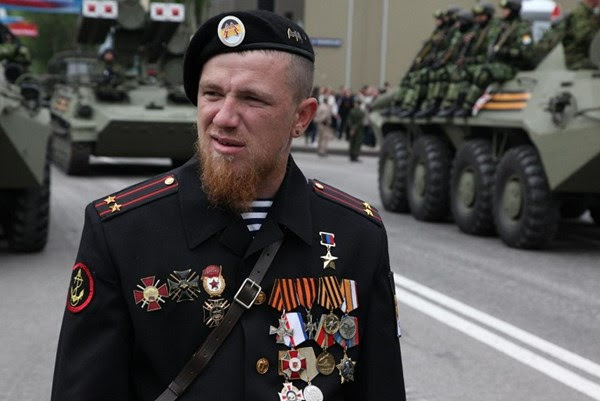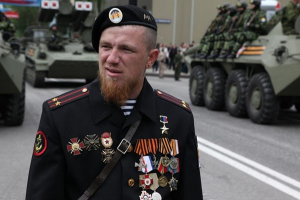Separatist Commander, Alleged War Criminal Killed in Ukraine’s Donbass
KYIV – More than two years after the war in Ukraine’s eastern Donbass region began, one the conflict’s most notorious pro-Russian commanders was killed in a bomb blast earlier this week while returning home with a bodyguard.
Arseny Pavlov, a Russian citizen who gained fame under the anomalous nom de guerre “Motorola”, was killed with one of his bodyguards by an improvised explosive device (IED) while in the lift of his apartment block in the Russian-controlled separatist city Donetsk on Sunday.
Born in Russia’s subarctic Komi Republic, the ginger-bearded and gap-toothed Pavlov joined the Moscow-backed rebels in the Donbass in March 2014 shortly after being convicted of car theft in the southern Russian city Rostov-na-Donu.
He later went on to lead the separatist Sparta Battalion, made up mostly of Russian citizens with criminal backgrounds and ties to ultranationalist organization in the Russian Federation.
Ukrainian-based human rights groups and the OSCE have accused Pavlov and his Sparta Battalion of war crimes – including the summary execution and torture of Ukrainian soldiers – committed during and after the battles of Ilovaysk, the Donetsk Airport and Debaltseve in late 2014 and early 2015.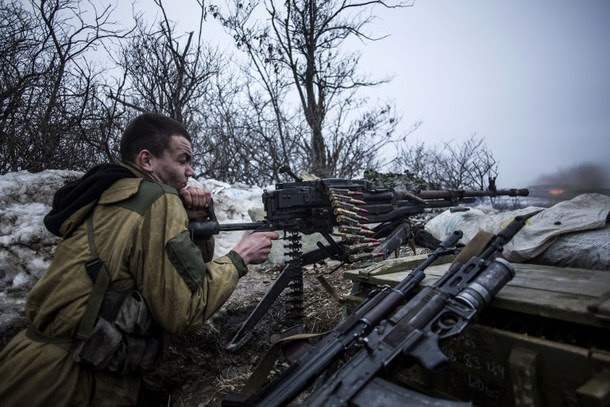
In an April 2015 taped interview with the Kyiv Post’s senior reporter Oleg Sukhov, Pavlov admitted to personally executing 15 Ukrainian prisoners of war. His admission prompted London-based NGO Amnesty International to call for an “independent investigation into the actions of other pro-Russian units operating in the Donbass”.
Details of the 33-year-old Pavlov’s biography remain sketchy, though it is known that he served as a teenage conscript in the Russian armed forces in the 1999-2001 Second Chechen War.
According to Pavlov, he got his nickname "Motorola" after working with equipment manufactured by the US-based telecom company while serving as a wireman in the Russian army in the North Caucasus.
Pavlov was known to enjoy the personal backing and close friendship of two of Russia’s most notorious ultranationalists, politician and Russian MP Vladimir Zhirinovsky and former FSB Colonel Igor Girkin – the latter of which Pavlov served under in early stages of the Donbass War.
Zhirinovsky allegedly bought Pavlov’s apartment and a car in Donetsk.
Girkin – who is believed to have ordered the shoot down of Malaysian Flight 17 and the execution of pro-Ukrainian civilians in the Donbass – attended Pavlov’s wedding to a local Donetsk-born girl in the summer of 2014.
Donetsk rebel leader Alexander Zakharchenko condemned the attack and vowed revenge against the Ukrainian government.
"As I understand it, (Ukrainian President) Petro Poroshenko has violated the Minsk ceasefire and declared war on us…I want to be clear about this. We will avenge this act of terrorism," Zakharchenko was quoted as saying in a television broadcast.
Fellow pro-Russian separatist commander and a close friend of Pavlov – the half-Georgian Mikhail Tolstykh, who goes by the Georgian nickname “Givi” – has vowed to “kill a million civilians and destroy every Ukrainian city” to avenge Pavlov’s death.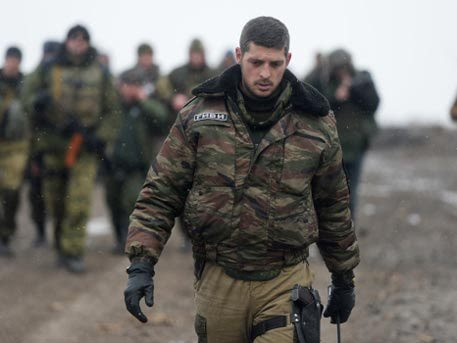
Tolstykh is listed on the EU and US sanctions list after being caught on tape torturing Ukrainian soldiers captured at the Battle of the Donetsk Airport in February 2015.
It remains unclear who is responsible for Pavlov’s death.
A video appeared online, purportedly from a Ukrainian nationalist group calling itself the “Misanthropic Brigade”.
The group claimed it had killed Pavlov and its members say they have infiltrated the highest echelons of the Russian separatists’ command structure and threaten to target both Zakharchenko and Tolstykh, as well as rebel political leader Igor Plotnitsky.
Ukraine’s SBU intelligence services, however, believes Pavlov may have been eliminated by the separatist commander of an Abkhaz Battalion.
The SBU claims Akhra Avidzba, the commander of the pro-Russian 15th Abkhaz Volunteer Brigade, ordered Pavlov’s death after the latter attempted to arrest several individuals under Avidzba’s command.
Pavlov’s death is the latest in a series of unexplained killings involving key commanders in the pro-Russian separatist forces.
More than half of a dozen principal separatist commanders have been assassinated by unknown assailants since September 2015.
The war in the Donbass region has claimed more than 10,000 lives and left nearly one million people as refugees since hostilities began in April 2014.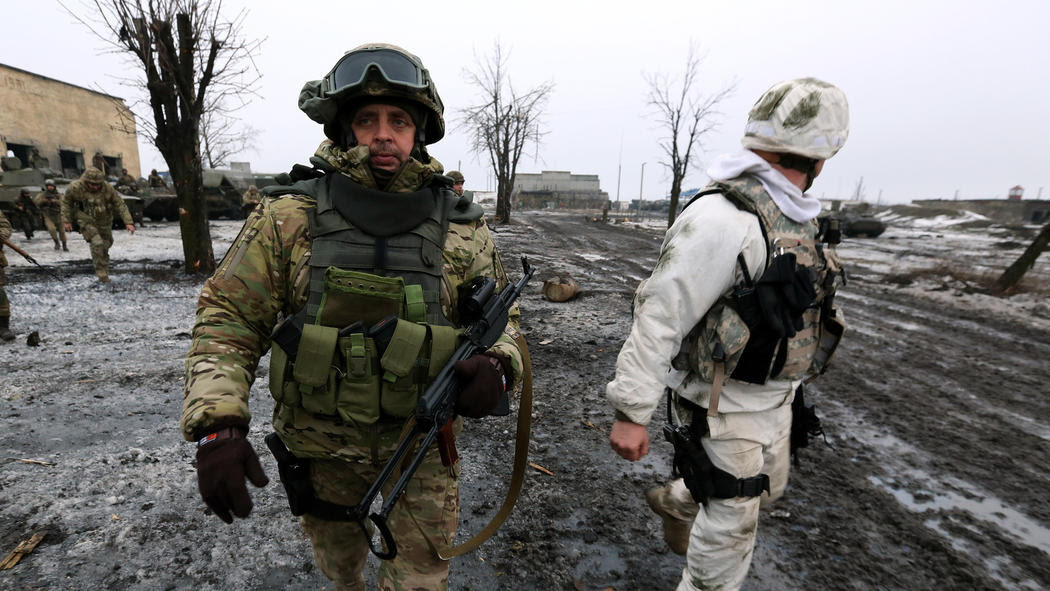
Despite having won key battlefield victories, Russia and its separatist allies in the region have been unable to score a decisive tactical victory against Ukraine’s military and have lost 80 per cent of the territory it originally controlled at the onset of the war.
Supporting Ukraine’s once beleaguered military are scores of volunteers from around the former Soviet Union, including dozens of Georgians, Chechens, Moldovans and Azeris – all of whom fought against Russia and its allies in the 1990s.
By Nicholas Waller
Photo 1: Ukrainian gunner at the Battle of Debaltseve, February 2015
Photo 2: Pro-Russian, ethnic Georgian commander Mikhail "Givi" Tolstykh
Photo 3: Ukranian Special Forces at the Battle of Donetsk Airport, January 2015
AP, LA Times, Sergey Loiko
